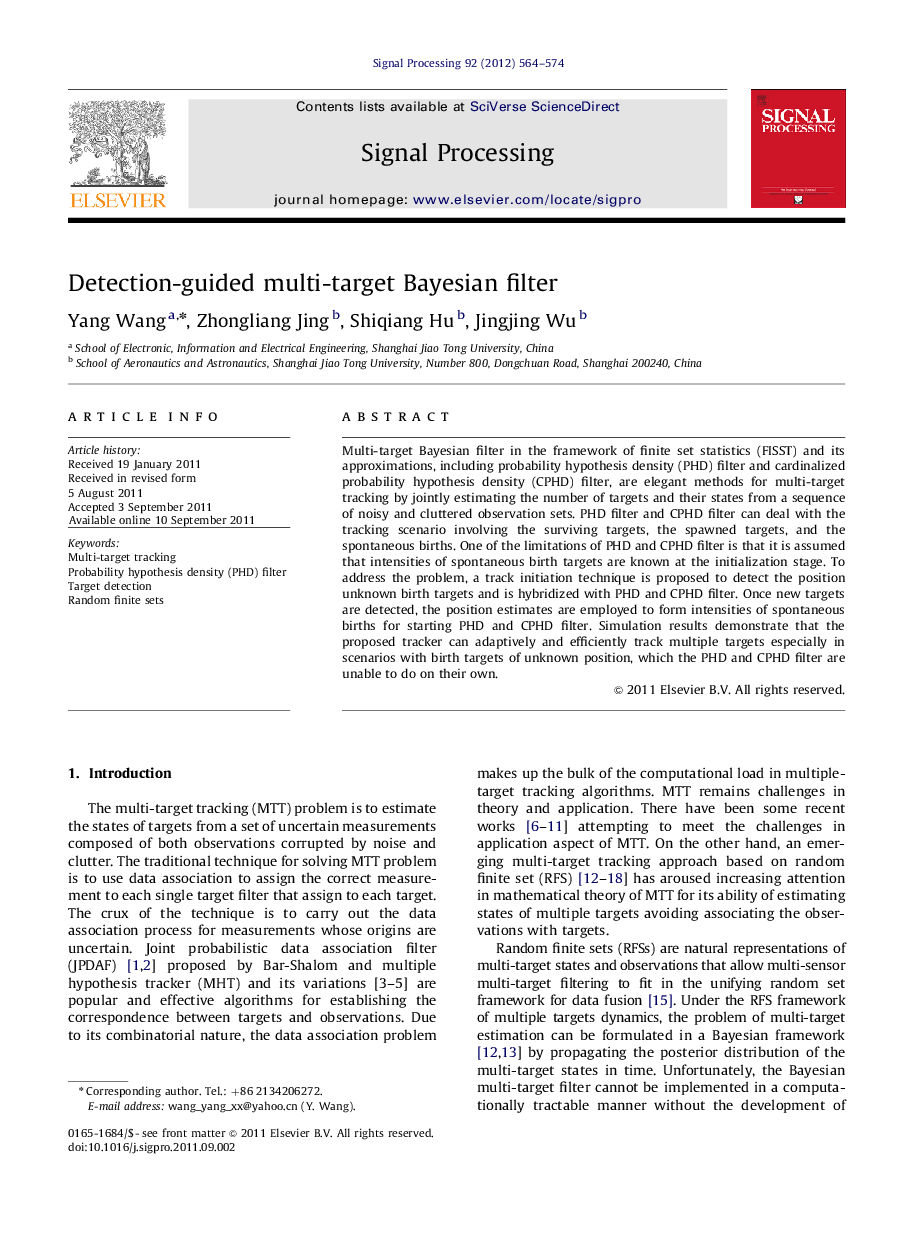| Article ID | Journal | Published Year | Pages | File Type |
|---|---|---|---|---|
| 561414 | Signal Processing | 2012 | 11 Pages |
Multi-target Bayesian filter in the framework of finite set statistics (FISST) and its approximations, including probability hypothesis density (PHD) filter and cardinalized probability hypothesis density (CPHD) filter, are elegant methods for multi-target tracking by jointly estimating the number of targets and their states from a sequence of noisy and cluttered observation sets. PHD filter and CPHD filter can deal with the tracking scenario involving the surviving targets, the spawned targets, and the spontaneous births. One of the limitations of PHD and CPHD filter is that it is assumed that intensities of spontaneous birth targets are known at the initialization stage. To address the problem, a track initiation technique is proposed to detect the position unknown birth targets and is hybridized with PHD and CPHD filter. Once new targets are detected, the position estimates are employed to form intensities of spontaneous births for starting PHD and CPHD filter. Simulation results demonstrate that the proposed tracker can adaptively and efficiently track multiple targets especially in scenarios with birth targets of unknown position, which the PHD and CPHD filter are unable to do on their own.
► We give a solution to implementing PHD filter with position-unknown birth targets. ► The solution is based on an initiation method to detect randomly appearing targets. ► We compare the performance of the proposed method with original PHD filter. ► The detection-guided PHD filter is superior to PHD filter.
